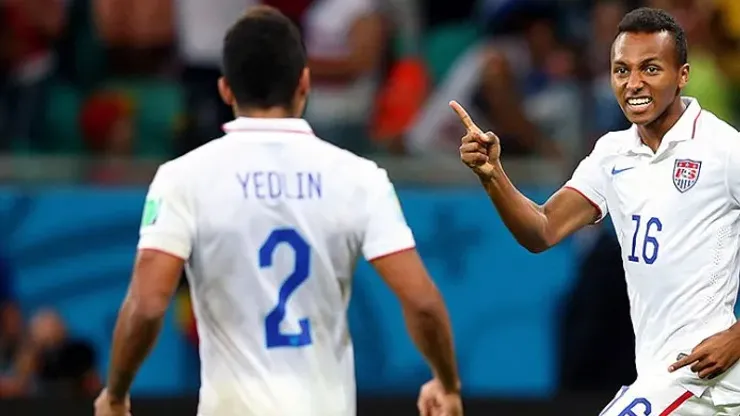After one day of letting the US’ loss to Jamaica marinate, very little about it has changed in the grand perspective. But one question has arisen based on what the entirety of Jurgen Klinsmann’s tenure has entailed thus far – is playing the long game in international soccer viable? Better yet, is it even possible?
Klinsmann by his own roster choices has basically admitted he is waiting out until his stable of young prospects fully develop. Through this, roster decisions like taking DeAndre Yedlin and Julian Green and starting John Brooks and Ventura Alvarado together even when the early returns have been mediocre at best don’t seem like that much of a surprise. Even when Klinsmann managed Germany and Bayern Munich, he’s always had the future and the long-term in mind. This makes sense when you’re also the technical director, which Klinsmann is. But in reality, can this formula of cultivating youth when international football is so cut-throat really pay dividends?
Soccer in many respects is the sport with the smallest grace period. If results aren’t coming sometimes within seven or eight games, panic alarms shatter eardrums. In international football, one misstep can bring about disaster, making the stakes even higher. The highest stakes come in international tournaments, many of which are odd, insulated events where form and facts are discarded for luck, shady officiating and craziness. In that sense, shouldn’t every international manager play with the present at the forefront of their minds, future be damned?
Sure, every soccer manager has to think about the future else they’d be naïve and too introspective. But playing certain tournaments and friendlies with only the future in mind even when the present has such high stakes makes for weird bedfellows, especially when the present has paid more immediate and obvious returns than the future. Guus Hiddink found that out with his replacement sitting right next to him in the dugout, and a disastrous Euro 2016 qualification campaign has Danny Blind in the hot-seat earlier than anticipated.
Klinsmann’s choices in selection and in XI’s have been a weird mixture of both, but both sides of the coin have been wrong. Kyle Beckerman is showing signs of being long in the tooth, when obvious replacements like Perry Kitchen and Danny Williams are left out. Then, when it seems like a centerback pairing is clicking (Omar Gonzalez and Matt Besler), it’s discarded for a talented but raw Brooks and converted full back Alvarado. Yedlin, Gyasi Zardes and others are played out of position for few clear reasons, and even then Klinsmann calls up Alan Gordon and DaMarcus Beasley when it looks like they have no national team futures (or have retired). The entirety of it all is head scratching.
Klinsmann (hopefully) has his finger on the pulse of the future of the program, and he’ll know better than anyone who is coming down the line and can contribute. But, that’s why they are called “prospects”. There are players right underneath his nose, in MLS and abroad that can make important contributions immediately but are snubbed for the promise of huge riches in the future. But after mediocre results and a malaise post-World Cup, are those riches possible or even plausible?
In international soccer, there is little time for acclimation or complex tactical set-ups. Chemistry is necessary for success and a cohesive plan is paramount. That cohesion comes from players having an understanding with each other, which is nigh on impossible when consistent XI’s are a pipe dream and young players who are talented but raw are given free rein to mess up when consistent proven commodities are left to collect dust on the bench because the “promise of the future” is too great to pass up. With how little margin for error, and how few games there are in international football, this doesn’t seem like a sound strategy for success.
The Dutch have found this out, Greece found this out, and no doubt more national teams will in the future – playing for the long term in international football is incredibly risky and often fails.
Author Rick Riordan once said, “Knowing too much of your future is never a good thing.” I doubt he was talking about international football, but when the shoe fits.
200+ Channels With Sports & News
- Starting price: $33/mo. for fubo Latino Package
- Watch Premier League, Women’s World Cup, Euro 2024 & Gold Cup
The New Home of MLS
- Price: $14.99/mo. for MLS Season Pass
- Watch every MLS game including playoffs & Leagues Cup
Many Sports & ESPN Originals
- Price: $10.99/mo. (or get ESPN+, Hulu & Disney+ for $14.99/mo.)
- Features Bundesliga, LaLiga, Championship, & FA Cup
2,000+ soccer games per year
- Price: $5.99/mo
- Features Champions League, Serie A, Europa League & Brasileirāo
175 Premier League Games & PL TV
- Starting price: $5.99/mo. for Peacock Premium
- Watch 175 exclusive EPL games per season






